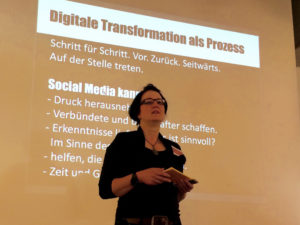- eco Survey: Around half of German survey participants envisage applications for deletion through public authorities (36%) or courts (11%)
- Search engine operators role as judge is problematic
- eco publishes seven central discussion points on the Right to be Forgotten
Almost a year after the European Court’s (ECJ) decision on the so-called “Right to be Forgotten”, the majority of Internet users in Germany consider the judgment to be right. The ECJ verdict from 13 May 2014 obligates search engine operators to remove links to personalized content for the search index, if so desired by the affected person. Around 20 percent of respondents, however, see the danger of a possible negative impact on the freedom of information and opinions in the Internet. These are the findings of a representative survey carried out in Germany by the polling institute YouGov on behalf of eco – Association of the German Internet Industry. Most German users are not in agreement with the role that the ECJ assigned to search engine providers. Around 50 percent of those surveyed think it would be better if a public authority (36%) or a court (11%) were responsible for balancing the right to privacy and the interest of the public in gaining access to comprehensive information, and therefore in the end these institutions should be responsible for the decision about the deletion of a link.
Search engine operators role as judge is problematic
“With the verdict on the Right to be Forgotten, the ECJ has forced search engine providers into a role as a kind of judge for conflicts about online content,” Oliver Süme, eco Director of Policy and Law, criticizes the outcome. “This not only raises fundamental questions with regard to law enforcement, but it also contradicts the underlying liability privileges in the E-Commerce Directive.” What he sees as particularly remarkable about this decision is that the content which the search engines are no longer permitted to link to is “legal” content, which means that the information itself will remain in the Internet. “This division between the legality of a statement and the legality of the accessibility of this statement is problematic, exactly because of the role search engines play in the obtaining of information in the Internet,” says Süme. He feels that the judgment and its significance for the Internet and the digital knowledge society is so fundamental that a thorough debate on privacy and public interest in the information age and the responsibility of information intermediaries is required.
From the perspective of the Internet industry, there are still many open questions on the form of the verdict and on the role of intermediaries such as search engine operators. The hard-to-predict consequences for the freedom of information and opinions in the Internet must also be further discussed.
The Internet industry’s seven central discussion points on the Right to be Forgotten.
Infographic on results to German survey about Right to be Forgotten.




